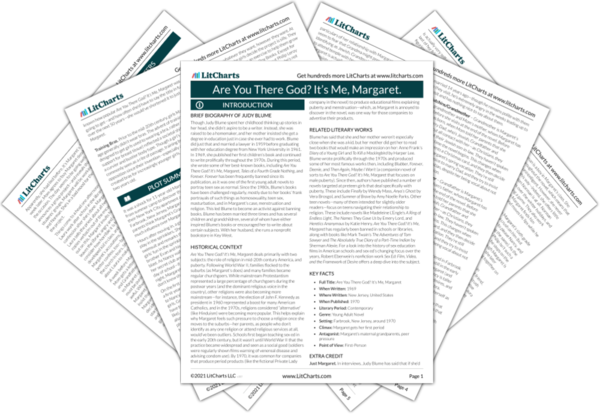Previous
Chapter 24
|
Previous
Chapter 24
|
Are You There God? It’s Me, Margaret.: Chapter 25 Summary & Analysis |
Next
Themes
|


Upgrade to unlock the analysis and theme tracking for all of Are You There God? It’s Me, Margaret.Are You There God? It’s Me, Margaret.!
Get LitCharts A+